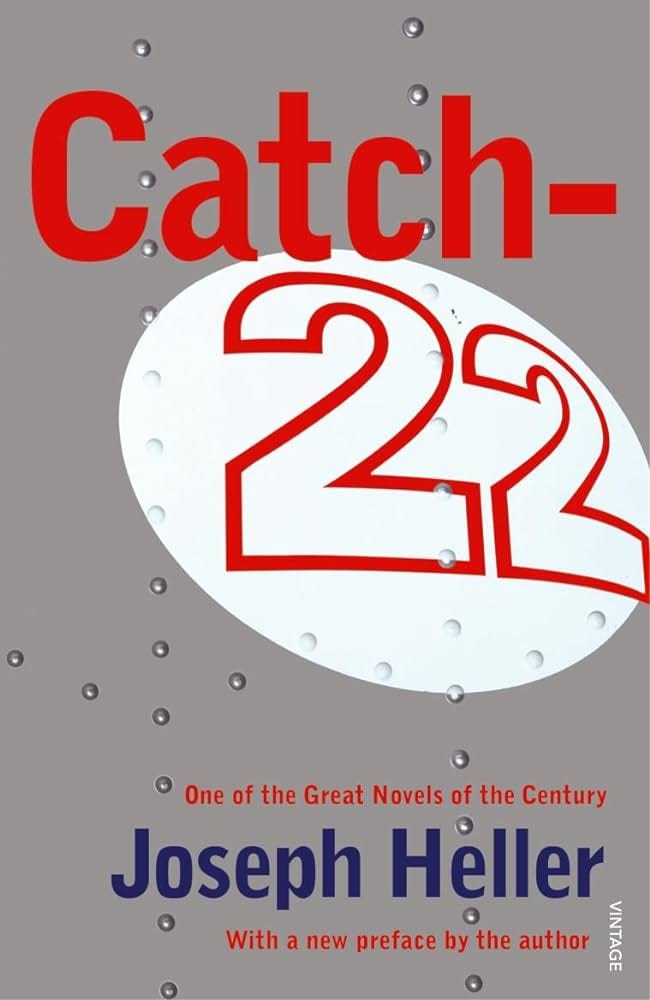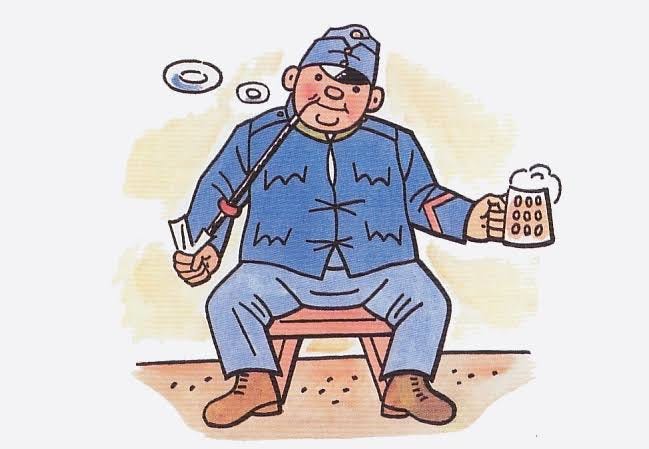Yossarian's struggles
I read the novel Catch 22 last week. Many people from Shelfari had recommended this book to me. That is the main reason I searched for and found this anti-war novel. And it turned out great! The novel is written by Joseph Heller, and when it was published first in the 1960s, there was very limited backing from critics. Months later, when it got published on paperback, it went on to become a huge best seller.
Catch 22 is the story of Yossarian, the Chief Bombardier of the American Air Force Unit ('Officers, you are American soldiers! Soldiers in no other army can claim that!') stationed at Pianosa, near Italy. Seeing his friends die in the war field and his war duties not getting over in the near future. Every time someone from his unit finishes the prescribed number of missions, the superior increases the limit. And every effort by Yossarian is thwarted by a fictional rule. Catch 22. Yossarian tries to fake madness, but his friend Doc Deneeka cannot ground him. In Heller's own words:
There was only one catch, and that was Catch-22, which specified that a concern for one's safety in the face of dangers that were real and immediate was the process of a rational mind. Orr was crazy and could be grounded. All he had to do was ask, and as soon as he did, he would no longer be crazy and would have to fly more missions. Orr would be crazy to fly more missions and sane if he didn't, but if he was sane, he had to fly them. If he flew them, he was crazy and didn't have to, but if he didn't want to, he was sane and had to. Yossarian was moved very deeply by the absolute simplicity of this clause in Catch-22 and let out a respectful whistle.
The novel became so famous that Catch 22 became a phrase in American English. Even though it is a war novel, in the story of the fight against the Germans, there is not even a single German enemy. The novel is a caricature of bureaucracy, which can turn any situation absurd through unnecessary complications, and people who use it to their benefit cleverly by creating loopholes in it. Col. Korn uses it to stop people from asking disturbing questions in military classes by making a rule that the only person who can ask a doubt is the person who never asks a doubt. So when anyone tries to ask a question, he automatically does not have the right to do so.
Another important character is Milo Mindbender, who is the mess officer and who buys eggs from Malta and sells them to messes for a cheaper rate. But he actually buys eggs from Italy at a cheap rate and sells them to himself in Malta. He buys them from himself in Malta and sells them to the mess. Thus, he finally makes a huge syndicate, promising everyone a share, becomes wealthier and wealthier, and ultimately becomes Mayor, Caliph, and what not in different places where he trades?
The style of the novel is peculiar in the sense that it does not have a chronological narration. Several clues and references are given to the future events, and it is left to the reader to imagine at what time the story is taking place. Any major event is repeated many times, through different points of view, and only finally does the reader get a complete picture of the plot. Also, the characterization and events are very witty, and the observations are quite contradictory. Like the Texan in the hospital bed who was so likeable and good that after three days none could stand him. or the dialogue:
When Major Major asks why he wouldn't fly more missions, Yossarian answers,I'm afraid.' 'That’s nothing to be ashamed of,' Major counsels him kindly. 'We’re all afraid.' 'I’m not ashamed,’ Yossarian said. ‘I’m just afraid.'"
After Catch-22, Joseph Heller wrote his second novel, Something Happened, almost a decade later. I had read it before. It transfers the same style of storytelling to the life of a hard-core professional building the American Dream in the 1970s. Although it was great in showing that professional greatness in the corporate world will be achieved only by sacrificing a healthy personal life, I found it a tad too boring with 500+ pages. If it were shortened to a novella of 100 or more pages, it would have been excellent.
1984, Orwell's well-read book of an apocalyptic world where corruption has reached gigantic proportions and the whole society is built on it, and where society itself acts on people who try to resist it, is very similar to Catch 22. But 1984 is too dark and almost becomes too pragmatic, mechanical, and propagandistic, with very limited imagination displayed... I would at any time prefer Orwell's Animal Farm, which is far too parable-like, wittier, and better written.
The Good Soldier Svejk is a Czech novel written by Jaroslav Hasek that is also based on the attempts of a lone soldier to avoid war. I read Catch 22 because many people told me it was better than the latter, which I had read before. But I feel Svejk is much funnier and more anti-war than Yossarian. It is a loosely written novel without any plot techniques. But Svejk is against war; he is a selfish rascal who uses his wit to deceive his superiors and makes asses out of them, while Yossarian is more of an idealist who wants to get out of the army mainly because he has completed his quota of missions.





